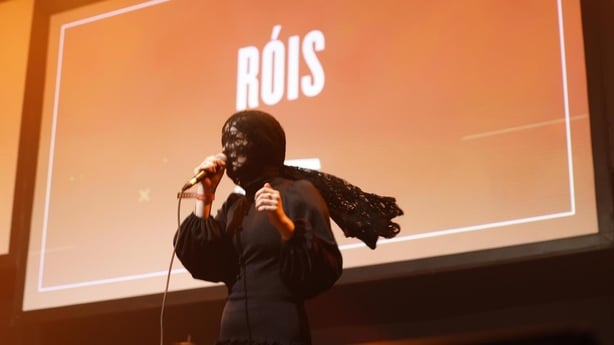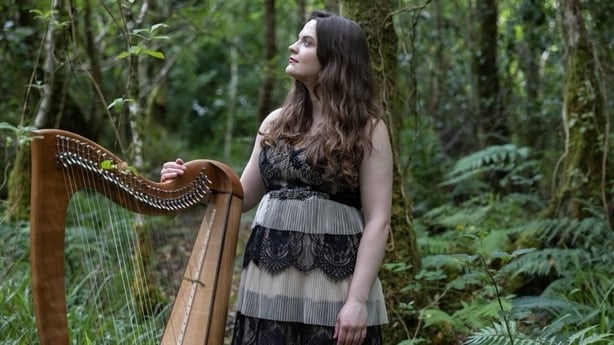Hands up if you've ever uttered 'I’d love to speak more Irish, but it’s the way it’s taught in school that’s the problem’?
It seems that generations of wannabe Gaeilgeoirs - myself included - have been left by the wayside, armed only with a cúpla focail from their schooldays and the unrealised ambition to speak fluently in their native tongue. It’s a convenient excuse, some would argue; if you really wanted to earn your Fáinne Óir, there are a multitude of ways around having to learn the modh coinníollach off by heart.

The good news is that it seems like a new generation of Irish artists are not only embracing the Irish language, but are actively promoting it. Twenty years ago, could anyone have foreseen an Irish language hip-hop group making waves internationally? It would’ve sounded too outlandish to be believable - yet earlier this week, Elton John himself was once again singing the praises of the Belfast trio. "I was just so knocked out by the energy they have, and the vitality they have - they’re just extraordinary," he said in a BBC interview. "And what they talk about is political, and there’s not many bands that do that." Elton abú.
Well well a chairde Gael!
— KNEECAP (@KNEECAPCEOL) September 27, 2024
We're joining @eltonjohn on his #RocketHour 🚀 radio show tomorrow (Saturday) on AppleMusic 🍏 (5pm BST) https://t.co/xGB7bB3RoN pic.twitter.com/aJPA6LRgvz
Kneecap may be at the vanguard of this new Gaeilge movement, but they’re not the only ones making Irish cool again. Fermanagh-born artist Rose Connolly aka Róis, whose album Mo Léan was recently nominated for the Choice Music Prize, created a remarkably singular piece of work that is based around the old Irish tradition of keening, and much of the record is sung as Gaeilge. Róis told me in a recent interview that she had only learned her native language fluently during her time at university, inspired by a desire to reclaim her cultural identity and keep up with her Gaeilgeoirí friends in the Connemara/Cork-based group Trá Pháidín.
"Cultural identity is really important to me, and I started to go really hard on learning it just before [debut album] Uisce agus Bean," the 25-year-old said. "I wanted my musical creative outlet to be intertwined with the language, because that’s who I am. I wanted it to be intersectional, fully engaged with Irish culture." It’s interesting that both she and Kneecap are Northern Irish, too; perhaps there really is something to the ‘it’s the way it’s taught’ trope south of the border?

It’s heartening to see a plethora of young acts paying homage to our culture and tradition. One of them is harpist and composer Alannah Thornburgh, whose recently-released bilingual album Shapeshifter is a beautifully-played exploration of fairy folklore and mythology. "I was always fascinated by the fairy fort behind my Grandad’s house," she said. "A conversation with him about the tale of ‘Mick na mBréag’ (Mick the Liar), who crossed the fairy folk, inspired the composition of a piece that ultimately became part of this album." Doom metal band Fós released their debut album Níl mo Chroí in Aon Rud in January; folk four-piece Landless incorporated Irish into their superb 2024 album Lúireach, and Dublin-based collective IMLÉ have been integrating their blend of hip-hop, folk and pop with the Irish language for several years now to great effect.
We need your consent to load this Spotify contentWe use Spotify to manage extra content that can set cookies on your device and collect data about your activity. Please review their details and accept them to load the content.Manage Preferences
Of course, there are plenty of boundary-pushing Irish artists doing great things on their own merit, too, as well as acts who have performed as Gaeilge for decades. As we celebrate Seachtain na Gaeilge, however, it’s really encouraging to note how for this new young generation, Irish is not just for summer holidays in the Gaeltacht, but a proud expression of their culture - no matter what the genre. Ar aghaidh libh!


